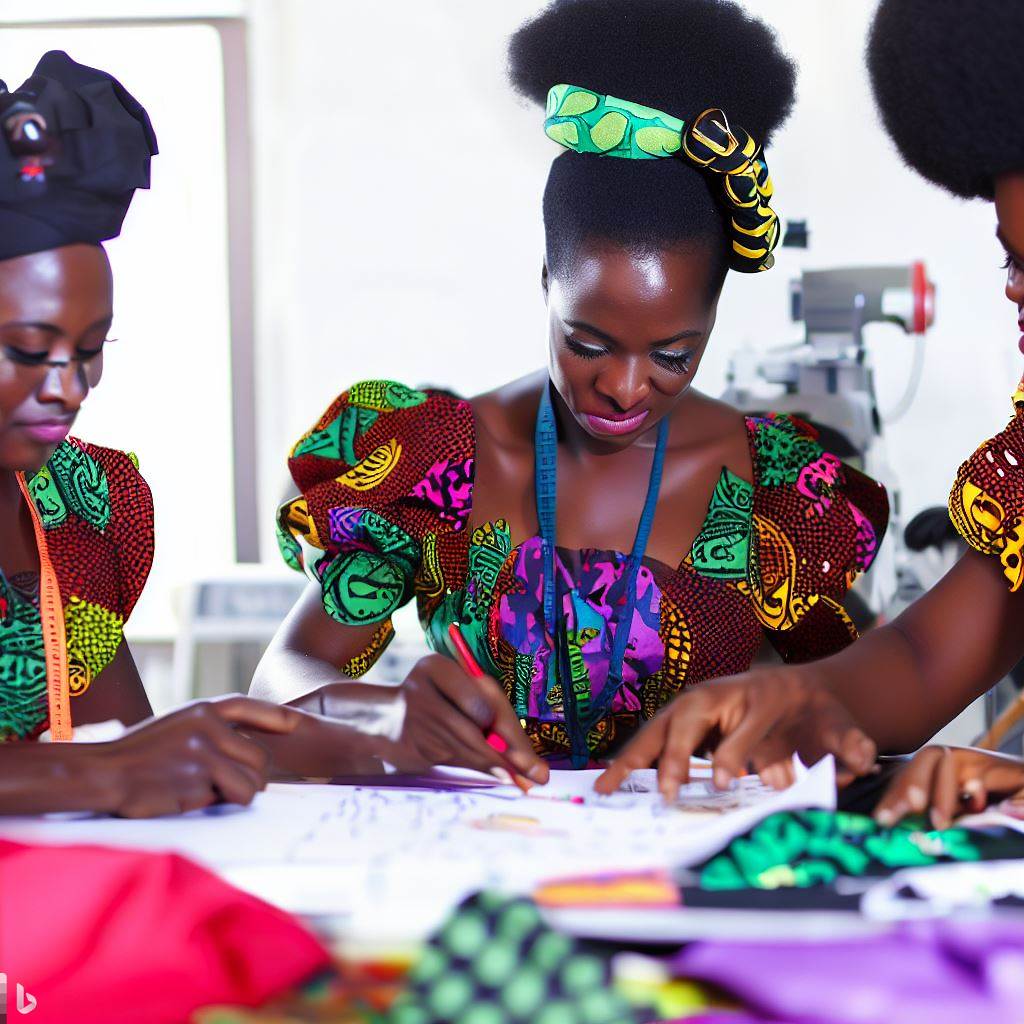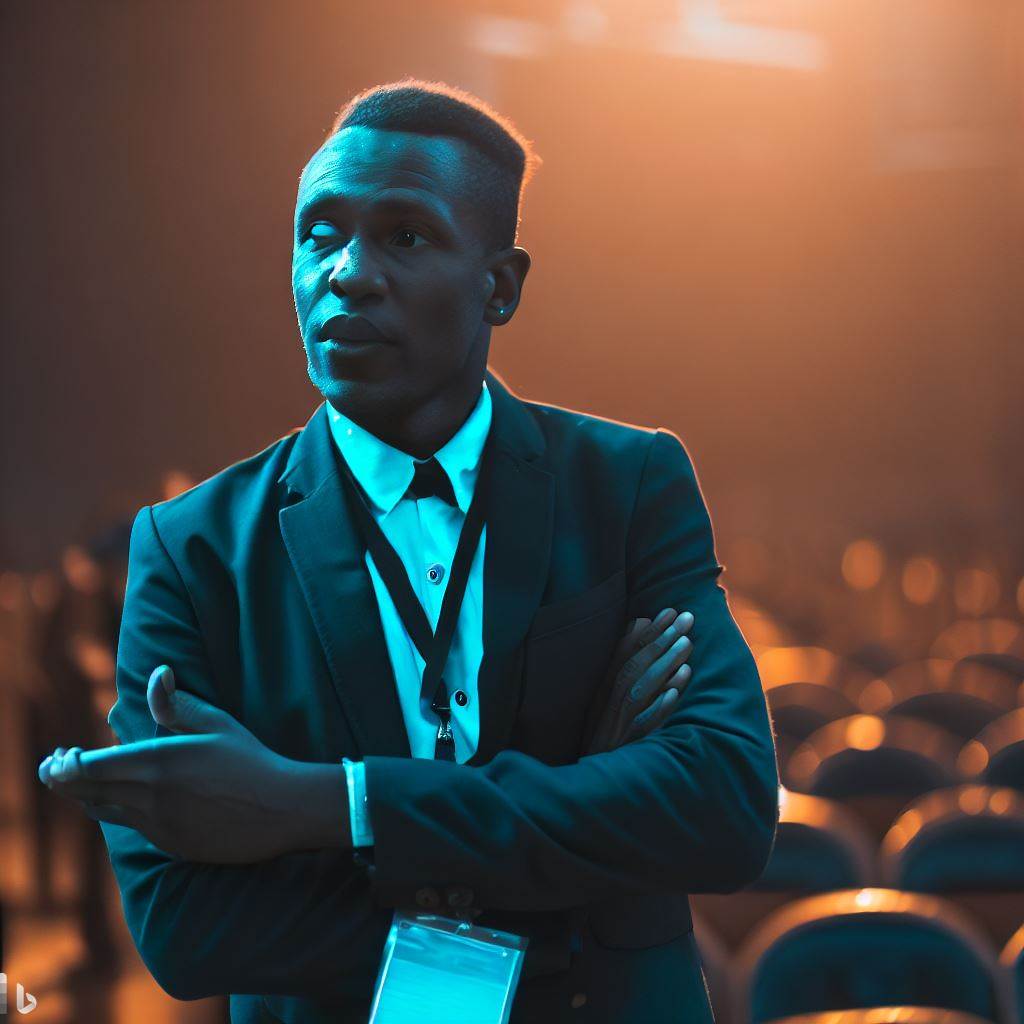Introduction
The Nigerian music industry is a vibrant and thriving sector that has gained immense recognition globally.
Despite its immense potential, it is a complex and dynamic industry that requires a deep understanding for concert promoters to succeed.
Overview of the Nigerian music industry
The Nigerian music industry is a melting pot of diverse genres, including Afrobeat, afro-pop, hip-hop, and highlife.
It has produced globally celebrated artists like Wizkid, Davido, and Burna Boy.
Importance of understanding the industry for concert promoters
Understanding the Nigerian music industry is crucial for concert promoters as it helps them navigate the unique challenges and opportunities that come with organizing successful events.
It allows promoters to identify emerging talents and connect with the right artists and stakeholders.
With a deep understanding of the industry, concert promoters can effectively market their events, target the right audience, and create memorable experiences.
They can also negotiate favorable deals with artists, sponsors, and venues.
Moreover, understanding the industry enables concert promoters to anticipate trends and stay ahead of the competition.
This knowledge helps in planning and executing well-attended and profitable concerts.
Tthe Nigerian music industry is a vibrant and complex sector that demands a comprehensive understanding.
For concert promoters, this understanding is paramount for success, enabling them to navigate challenges, connect with artists, and create unforgettable experiences for music enthusiasts.
Historical Background of the Nigerian Music Industry
A. Emergence of Nigerian Music in the 1960s
- Nigerian music traces its roots to the 1960s, coinciding with the country’s independence from British colonial rule.
- The 1960s marked the birth of highlife music, a genre blending traditional African rhythms with Western influences.
- Pioneering artists like Victor Olaiya and Bobby Benson popularized highlife, shaping the industry’s early landscape.
- Highlife’s catchy melodies and lively beats made it the soundtrack of post-independence optimism.
B. Evolution of Genres and Artists Over the Years
- The 1970s witnessed the emergence of Afrobeat, spearheaded by the legendary Fela Kuti.
- Afrobeat, with its political and social commentary, became a powerful tool for change.
- In the 1980s, Juju music rose to prominence, with King Sunny Ade as its leading figure.
- Meanwhile, the 1990s saw the explosion of hip-hop and R&B, led by acts like Plantashun Boiz.
- The 2000s brought the rise of Nollywood, leading to a symbiotic relationship between film and music.
- Contemporary artists like Wizkid and Burna Boy have taken Nigerian music to the global stage.
C. Impact of Globalization on the Industry
- Globalization has transformed the Nigerian music industry, making it more accessible worldwide.
- The internet, social media, and streaming platforms have allowed artists to reach a global audience.
- Collaborations between Nigerian artists and international stars have become commonplace.
- Nigerian music’s fusion of local and global influences appeals to diverse audiences.
- The industry has attracted international investments, leading to improved production quality.
- Nigerian music’s cultural influence has elevated the country’s image on the world stage.
In summary, the Nigerian music industry has a rich history that spans several decades.
It began with the emergence of highlife in the 1960s, evolved through various genres and iconic artists, and has been greatly influenced by globalization in recent years.
This history has laid the foundation for concert promoters to tap into the vibrant and dynamic Nigerian music scene, offering a wide range of genres and artists to cater to diverse audiences.
Understanding this historical background is essential for anyone looking to navigate and succeed in the Nigerian music industry as a concert promoter.
Key Players in the Nigerian Music Industry
A. Major record labels and their roles
- Universal Music Group Nigeria: One of the largest labels in the world, it focuses on A&R, distribution, and promotion.
- Sony Music West Africa: Provides a platform for Nigerian artists to showcase their talents to a global audience.
- Mavin Records: Known for nurturing emerging talents and producing hit songs that dominate the Nigerian music scene.
- Chocolate City: A leading label for rap and hip-hop artists, it has launched the careers of successful acts.
- DMW (Davido Music Worldwide): Owned by popular artist Davido, it aims to support and promote both established and emerging acts.
B. Independent artists and their significance
- Burna Boy: A Grammy-winning artist who rose to fame independently, showcasing the potential of independent artists.
- Wizkid: One of the most successful Nigerian artists, he gained recognition through his independent releases.
- Johnny Drille: Known for his unique style, he gained popularity as an independent artist before signing with a major label.
- Tems: An alternative R&B artist who gained international acclaim independently, inspiring other emerging talents.
- Fireboy DML: Started as an independent artist and garnered massive attention, eventually signing with a major label.
C. Prominent music producers and their influence
- Don Jazzy: Founder of Mavin Records, he is known for producing hit songs and shaping the sound of Nigerian music.
- Sarz: A versatile producer, he has worked with both local and international artists, making him highly sought after.
- Pheelz: Known for his unique production style, he has contributed to the success of numerous Nigerian artists.
- Kel P: Collaborating with Burna Boy, he played a key role in the international recognition of Afrobeat music.
- Kiddominant: Produced Davido’s global hit “Fall” and continues to work with top artists in the industry.
D. Notable influencers and industry gatekeepers
- DJ Cuppy: With her strong social media presence, she has become a powerful voice in the Nigerian music scene.
- Olamide: As an artist and label owner, he influences the industry and supports emerging talents.
- Burna Boy’s Manager, Bose Ogulu: She plays a crucial role in his success, managing his career and brand.
- Ovie Ofugara: Founder of Notjustok, a popular Nigerian music website, he shapes the industry’s narrative and trends.
- Osagie Alonge: A prominent music journalist, he provides critical analysis and commentary on the industry.
The Nigerian music industry has a diverse range of key players, including major record labels, independent artists, influential producers, and industry gatekeepers.
Their contributions shape the industry, ensuring its growth and continued success. Concert promoters should understand these key players to effectively navigate the Nigerian music landscape.
Read: The Impact of Fake News on Journalism in Nigeria
Understanding the Nigerian Music Market
A. Overview of the Nigerian audience demographics
- Nigeria has a population of over 200 million people, making it the most populous country in Africa.
- The Nigerian music market is predominantly young, with the majority of the population under the age of 35.
- The Nigerian audience is diverse, consisting of different ethnic groups, religions, and social classes.
- Urban areas like Lagos and Abuja have a more cosmopolitan audience, while rural areas have a more traditional audience.
- The audience is tech-savvy, with widespread access to smartphones and internet connectivity.
B. Popular music genres in Nigeria
- Afrobeat is one of the most dominant genres in Nigeria, popularized by icons like Fela Kuti and more recently, Burna Boy.
- Highlife, a genre influenced by western music and traditional Nigerian melodies, is also highly popular.
- Afropop, a fusion of African rhythms and Western pop music, has gained significant popularity across Nigeria.
- Hip-hop and R&B have a strong following, with Nigerian artists like Davido and Wizkid gaining international recognition.
- Gospel music, fuji, juju, and reggae also have dedicated fan bases in Nigeria.
C. Regional music scenes and their characteristics
- Lagos has the most vibrant music scene in Nigeria, with a diverse range of genres and artists.
- The eastern region is known for its highlife and Igbo-centric music, while the north has a rich tradition of traditional Hausa music.
- The Niger Delta region is known for its unique blend of highlife, reggae, and gospel music.
- Each region has its own distinct music festivals and events, showcasing local talent and celebrating cultural diversity.
- Collaboration between artists from different regions is common and helps to foster a sense of unity in Nigerian music.
D. Cultural influences on music preferences
- Nigerian music is heavily influenced by the diverse cultural heritage of the country.
- Traditional Nigerian music instruments like the talking drum, shekere, and kalimba are often incorporated into modern compositions.
- Nigerian music reflects the country’s history, struggles, and achievements, allowing listeners to connect on a deeper level.
- Western music influences, especially from the United States and the United Kingdom, have also shaped Nigerian music preferences.
- The fusion of different cultural elements in Nigerian music creates a unique and captivating sound that appeals to a wide audience.
Understanding the Nigerian music market is crucial for concert promoters.
The audience demographics, popular genres, regional music scenes, and cultural influences all play a significant role in planning successful events.
By recognising the diversity and preferences of the Nigerian audience, promoters can curate concerts that resonate with the local population and contribute to the growth of the music industry.
Read: Nigerian Journalism: An Overview of Salary Ranges

Challenges and Opportunities for Concert Promoters
A. Infrastructure and logistics considerations
- The Nigerian music industry lacks adequate infrastructure to support large-scale concerts.
- Transportation networks, venues, and equipment rental services need improvement.
- Concert promoters face challenges in coordinating logistics such as stage setup, sound systems, and lighting.
- Availability of skilled technicians and support staff is limited, increasing operational costs for promoters.
- However, improving infrastructure and logistics can create more opportunities for successful concerts in the future.
B. Licensing and legal requirements
- Concert promoters must obtain permits and licenses from various government agencies.
- The process of securing necessary permits can be time-consuming and bureaucratic.
- Compliance with copyright laws and intellectual property rights is essential.
- Neglecting legal requirements can lead to fines, closure of events, and damage to reputation.
- Concert promoters need to understand and navigate the complex legal landscape to avoid potential liabilities.
C. Competitiveness and market saturation
- The Nigerian music industry is highly competitive with numerous concert promoters vying for attention.
- Market saturation makes it challenging for promoters to stand out and attract audiences.
- Promoters must come up with innovative marketing strategies to differentiate their events.
- Collaborations with popular artists, social media campaigns, and unique event concepts can help overcome competition.
- Understanding target audiences and catering to their preferences can give promoters a competitive edge.
D. Potential for profitability and growth
- The Nigerian music industry offers significant potential for concert promoters to generate profit.
- Increasing disposable income and a growing middle class contribute to higher concert attendance.
- Promoters can explore revenue streams beyond ticket sales, such as sponsorships and merchandise.
- Investing in technology-driven approaches such as livestreaming and virtual concerts can expand reach and profitability.
- Collaboration with international promoters and artists can open doors to global audiences and business opportunities.
Concert promoters in the Nigerian music industry face various challenges, but also have opportunities for growth.
Improving infrastructure and logistics, navigating legal requirements, outshining competitors, and capitalizing on profitability potential are crucial for success in this dynamic industry.
By understanding the unique context of the Nigerian music industry and leveraging strategic approaches, concert promoters can overcome challenges and flourish in this exciting market.
Read: Interview with a Nigerian Hollywood Sound Editor
Strategies for Successful Concert Promotions in Nigeria
A. Researching and identifying target audience
- Conduct thorough research to understand the preferences and demographics of your target audience.
- Analyze data from previous events and utilize market research tools for valuable insights.
- Utilize social media platforms and online surveys to gather feedback and preferences from potential attendees.
- Create buyer personas to have a clear understanding of your target audience’s interests and motivations.
- Tailor your marketing strategies and promotional activities according to the preferences of your target audience.
B. Collaborating with local influencers and artists
- Identify influential figures and local artists who have a significant following in Nigeria’s music industry.
- Collaborate with these influencers and artists to promote your concert through their social media platforms and networks.
- Leverage their fan base to increase awareness and generate buzz about your event.
- Consider offering special collaborations or performances by popular local artists to attract a larger audience.
- Develop mutually beneficial partnerships that can enhance your brand’s reputation and reach within the Nigerian music industry.
C. Navigating digital platforms and social media
- Create a strong online presence by utilizing popular social media platforms such as Facebook, Instagram, Twitter, and YouTube.
- Develop engaging and shareable content to attract and engage potential concert-goers.
- Leverage social media advertising and influencer marketing to reach a wider audience.
- Implement a targeted digital marketing strategy to ensure maximum visibility and ticket sales.
- Monitor and analyze the performance of your digital campaigns to make necessary adjustments and optimizations.
D. Securing necessary permits and licenses
- Familiarize yourself with the legal requirements and regulations for organizing concerts in Nigeria.
- Obtain necessary permits and licenses from relevant authorities well in advance.
- Ensure compliance with copyright laws and intellectual property rights when booking artists and promoting their music.
- Consult with legal experts or event management professionals to ensure adherence to all legal obligations.
- Maintain transparent and ethical business practices to build trust and credibility within the Nigerian music industry.
By implementing these strategies, concert promoters can increase their chances of success in the dynamic Nigerian music industry.
It is important to stay updated on current trends, adapt to technological advancements, and foster relationships within the industry to stay competitive.
Read: The Rise of Voice Acting Profession in Nigeria: An Overview
Case Studies of Successful Concerts in the Nigerian Music Industry
A. Examples of prominent international artists who have successfully performed in Nigeria:
- Chris Brown not only attracted a massive audience but also collaborated with local Nigerian artists.
- Beyoncé’s highly anticipated concert in Nigeria broke attendance records and generated social media buzz.
- Drake’s concert in Lagos was a huge success, with fans describing it as an unforgettable experience.
- Rihanna’s electrifying performance in Nigeria solidified her status as a global superstar.
B. Showcase of local artists who have achieved significant concert success
- Burna Boy’s concert in his hometown, Port Harcourt, drew a massive crowd and showcased his extraordinary talent.
- Wizkid’s sold-out show at the Eko Convention Centre demonstrated his immense popularity in Nigeria and beyond.
- Tiwa Savage’s concert was a memorable night, highlighting her exceptional singing and stage presence.
- Davido’s concert at the O2 Arena in London was a testament to his global appeal and influence.
C. Analysis of specific strategies and factors that contributed to their success
The success of international artists performing in Nigeria can be attributed to several factors:
- Collaboration with Nigerian artists: International artists partnering with local talents helped broaden their fan base and appeal.
- Effective promotion and marketing:Concert promoters used various channels to create hype and generate excitement among the audience.
- Venue selection and logistics:Choosing the right venue and ensuring smooth logistics played a crucial role in the success of these concerts.
- Incorporating Nigerian culture:Artists who embraced Nigerian culture in their performances connected with the audience on a deeper level.
- Social media presence: Engaging fans through Twitter, Instagram, and other platforms helped create a buzz and attract a larger audience.
Local artists achieved significant concert success by implementing specific strategies:
- Building a strong fan base: Consistently releasing hit songs and engaging with fans helped artists cultivate a loyal following.
- Collaborating with established artists: Partnering with well-known artists raised the profile of local artists and increased their concert success.
- Offering unique live experiences: Incorporating dance routines, extravagant stage designs, and live bands enhanced the overall concert experience.
- Strategic ticket pricing:Offering tiered ticket pricing allowed a wider audience to attend concerts, ensuring maximum turnout.
- Creating a personal connection: Artists who interacted with the audience during concerts made the attendees feel valued and connected.
Numerous international and local artists have achieved tremendous success in the Nigerian music industry.
Collaboration, effective promotion, venue selection, and cultural incorporation are integral to organizing successful concerts.
Building a strong fan base, collaborating with established artists, offering unique live experiences, strategic ticket pricing, and creating a personal connection are vital for local artists to achieve concert success.
The Nigerian music industry continues to thrive, attracting both international and local talents, and providing memorable experiences for audiences.
Conclusion
Recap of the importance of understanding the Nigerian music industry for concert promoters
Understanding the Nigerian music industry is crucial for concert promoters to navigate the unique dynamics of this vibrant and profitable market.
By familiarizing themselves with the local music scene, cultural preferences, and industry trends, promoters can effectively tailor their events to attract the right audience and ensure successful concerts.
Encouragement for further exploration and research in the field
As the Nigerian music industry continues to evolve and expand, concert promoters should constantly strive to deepen their knowledge and stay updated with the latest developments.
Conducting comprehensive research, attending industry events, and building relationships with local stakeholders will ultimately contribute to long-term success in organizing events in Nigeria.
Final thoughts on the potential of the industry for future growth and innovation
The Nigerian music industry holds immense potential for future growth and innovation.
With a large and diverse population, a rich musical heritage, and a growing middle class, concert promoters have a unique opportunity to tap into this dynamic market and contribute to its further development.
By embracing the unique blend of tradition and modernity within Nigerian music, promoters can foster creativity, drive industry innovation, and unlock new avenues for success.




